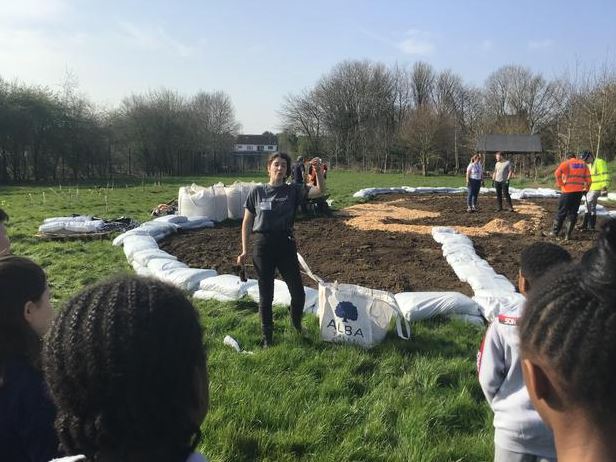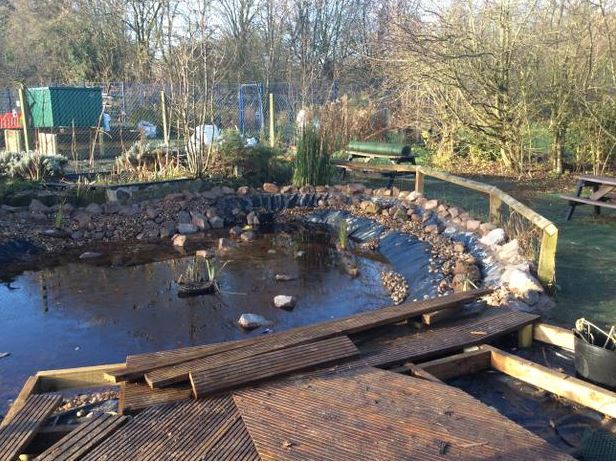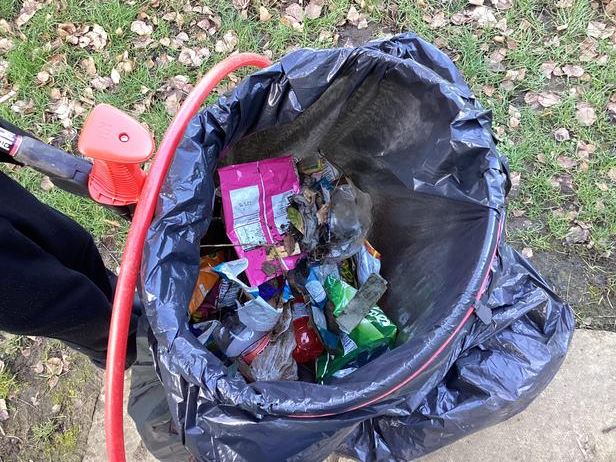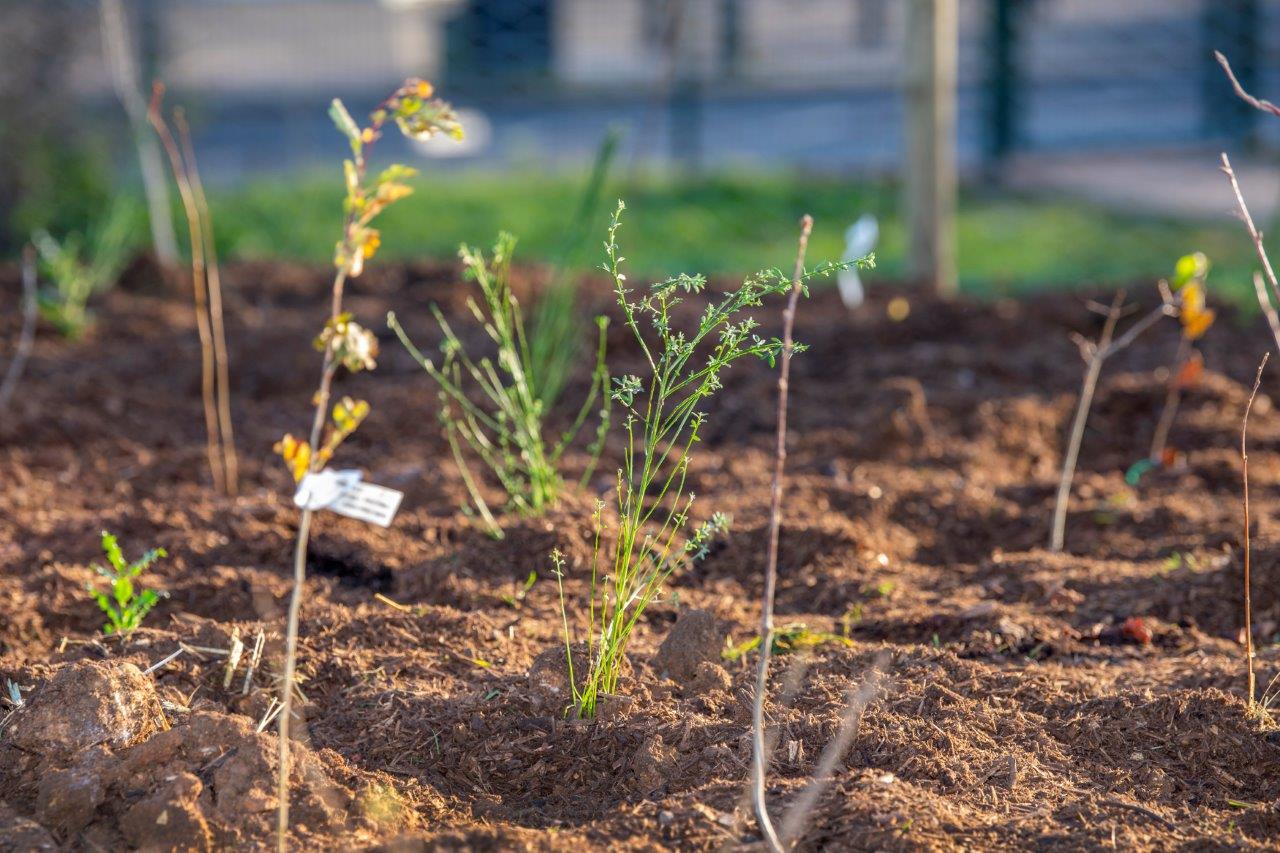James Perry is the Eco-Schools lead at Buswells Lodge Primary School in Leicester. We spoke to him about his experiences of climate and sustainability education in an urban area.

I’m the special educational needs and disabilities co-ordinator (SENDCo) and I’m also the lead for Eco-Schools at Buswells Lodge. We’re a primary school in an economically deprived part of Leicester.
How do you approach sustainability and eco work at your school?
I’ve recently started targeting children who I feel would benefit the most, based on their social and emotional needs. I want to give them the opportunity to get out of the classroom and develop their confidence.
I think being a city school is a key thing for us. I was brought up in an area where you could access the countryside within a five-minute walk. When we take a lot of our children on a trip to the countryside, they are amazed by seeing green space and animals. It reminds you that as city children they don’t necessarily get the opportunities that I did, especially with the level of deprivation some of them have. In the past, teachers have taken children to Bradgate Park, which isn’t that far from us, and you realise lots of them have never done that before.
For me, one of the driving forces behind Eco-Schools is to get some of these children outdoors as much as possible. We may not have a farm, but we have a space where we can grow some vegetables, and a school field for the children to learn on.
I think it’s imperative that the children help to retain and make use of these spaces. After all, it’s going to be their world, and their children’s world, and their grandchildren’s world. If they don’t start making changes, there’s a good chance that it might not be the world that we have now, and the natural spaces that we have now might not be here for them.
Have you had any training around sustainability or climate education?
I have accessed the training through the Sustainable Schools team at Leicester City Council. The last training which I took part in was Carbon Literacy, which was particularly insightful. There’s always a variety of training on offer and we get termly updates on this.

What activities have you undertaken at your school?
We tie activities into our Eco-Schools action plan. We have taken part in the Sea Starts Here project about plastic waste and we’re currently involved in a World Wild Fund for Nature project where we’ve planted hedgerows. We were involved in the Litter-Less litter-picking and we acquired a grant from Severn Trent Water to build an outdoor classroom and refurbish our pond area. We’ve also had a large amount of trees from the Woodland Trust, which are now growing beautifully on our school field.
How do you decide what projects to take part in?
Initially, we complete the Eco-Schools Environmental Review on an annual basis. Some elements of the review are instilled as everyday practice now, such as battery and pen recycling and litter-picking. And then it’s been a case of looking at other elements that we could feasibly target each year, and trying to enlist as much external funding or support for the children as we can to complete these targets.

Has this extracurricular work on sustainability influenced how subjects are taught at your school?
Not as much as I would like. There are links — geography and science are easier for teachers to make links to. We have science lessons where the children go out mini-beast hunting and looking in the pond and through the hedges. We also complete fieldwork in geography using our outdoor spaces.
Our biggest challenge is ensuring that teachers feel more confident to use our outside spaces. For example, it’s a nice day, why not read to the children out on the field instead of in the classroom? I’ve organised CPD run by the Sustainable Schools team to support teachers in using the outside more, so hopefully that will give teachers more confidence.
It would be worth the government considering giving schools more of an incentive to have the environment linked to the curriculum, like they do with British values — then you could have it running through the whole curriculum as a golden thread.

What barriers have you faced?
One barrier for us is parental engagement. Getting parents to engage is difficult for us as a school, so getting them to engage with sustainability is equally tricky.
Time is another barrier, and that’s staff release time more than anything else. There are also financial barriers to some extent, but there are always pockets of funding which you can apply for.
Your school has an Ofsted grade of ‘requires improvement’. Has that changed anything in the way you deliver Eco-Schools?
Ofsted have always been extremely complimentary about the fact that we’ve had Eco-Schools work as a high priority and we’ve held the Green Flag award for three years.
Ofsted always wanted to meet the School Council or Eco-Team and, again, were always very complimentary about what the children had achieved and how we as a school had targeted specific children almost as in intervention. So no, I don’t think that Ofsted has changed our delivery.
Where do you find funding opportunities and projects?
As a city, Leicester is lucky because our Sustainable Schools team are fantastic at updating us on funding and projects, usually through their monthly newsletter. They’ve also been supportive in making applications for funding and access to projects.
Once you make a start on the Eco-Schools process, you end up signing up to lots of initiatives, and you get regular updates and emails about future projects.

What makes a successful project?
Ease of accessing and maintaining projects is a key one for us. Having somebody who will come in and help you set up that project is always extremely useful. For example, we recently had our Walk to School Champion come in to lead a refresher assembly to re-engage the children and staff.
Another factor is a project that’s not going to take up a huge amount of staff time. It’s fine for me to say I want to do this project for school, but then I’ve also got to think: am I going to be impacting on staff workload when they’re already busy enough?
What does it take to be successful at this in all schools?
You need to have someone who’s willing to really champion it and get stuck in and have a go. Ideally, it’s someone who is eco-conscious themselves and is willing to do the heavy lifting for the rest of the school, to make it easier for the rest of the staff to engage in the projects.
You need to set time aside too. You need time with the children, and that time is usually when you’re supposed to be teaching, so release time from class is essential. You can choose to work with them in your lunch and in after-school clubs, but for me that wasn’t sustainable, and there hasn’t always been enough time to do everything well.
I personally don’t think I’d have been able to run Eco-Schools as well as I have if it wasn’t for the opportunities that have been highlighted to me. People have said: we’ll support you to do this, and there’s this training, and that project, and this pot of funding that we’ll help you apply for. The support of the Sustainable Schools team in Leicester has been vital.


